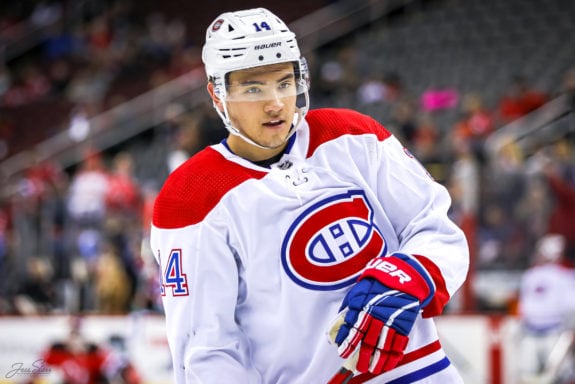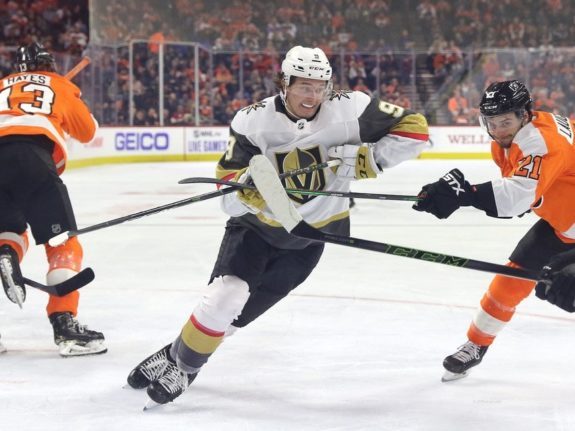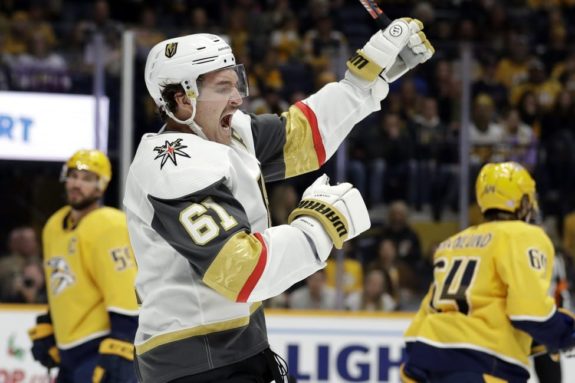When any team sees their season come to an end, there’s a natural push to reflect on what went wrong, what mistakes might have been made along the way and how those failings can be addressed. This is particularly true for the Vegas Golden Knights, who fell in six games to the surging Montreal Canadiens in spite of being heavily favored in the series.
Winning cures everything, and so for Vegas, a steady string of regular-season successes and deep playoff runs has left them rather immune to criticism even as general manager Kelly McCrimmon has built an aging roster with plenty of term and tight cap constraints.
With the loss to Montreal, however, much of the well-earned good will that the Golden Knights have accumulated could be slowly slipping away. For as great a story as the expansion team was and as remarkable as their sustained success has been, expectations are no longer low and this might arguably have been their best shot at an elusive Stanley Cup victory.
While it’s hard to draw a direct link between McCrimmon’s (or George McPhee’s) previous moves and this latest playoff disappointment, there are certainly some personnel decisions that must be looked at in a different light in the aftermath.
Suzuki for Pacioretty
The Vegas/Montreal series presented a nice, clean, direct examination of the 2018 blockbuster that sent long-time Canadiens captain Max Pacioretty Nevada-bound in exchange for Tomas Tatar, a second-round pick and 19-year-old prospect Nick Suzuki. As I mentioned in a series breakdown with The Hockey Writers‘ Canadiens contributor Melissa Boyd, a Cup victory would’ve validated surrendering a valuable young asset for the productive but aging — and expensive — Pacioretty.

Of course, that Cup victory won’t come this summer. In fact, it’s now Suzuki, 11 years younger and making a little more than 1/10th of Pacioretty’s salary this season, who sits four wins away from seeing his name engraved onto hockey’s Holy Grail. There was likely some understanding that this deal may not age well for Vegas, but team executives would certainly have expected to enjoy an edge in present production.
Pacioretty was perfectly fine in the postseason, registering 11 points (five goals, six assists) in 13 games. Against his former club, however, the 32-year-old could only muster a goal and two assists for a top line that struggled to find the back of the net. Suzuki, meanwhile, produced a goal and four assists for a playoff total of 13 points (five goals, eight assists), good for second on the Canadiens to teammate Tyler Toffoli.
Suddenly, a trade that has seemed mutually beneficial right up to the start of the series (and, to be fair, still is in a lot of ways) now looks awfully one-sided.
Drafting Cody Glass
While plenty of praise for the Canadiens’ incredible run has been directed towards Carey Price and the group’s stalwart defensive effort, much of the media attention has fallen upon the youth explosion brought on by centers Suzuki and Jesperi Kotkaniemi, as well as rising star winger Cole Caufield. To date, that trio has combined for 14 goals and 29 points in the postseason.
Far less visible has been the Golden Knights’ own young center Cody Glass, who continues to struggle to establish his place in the lineup full-time. Glass is actually older than all three members of the aforementioned Habs’ trio and while every player’s development timetable is different, it’s not an encouraging look for the 2017 sixth-overall selection to appear in just one playoff game. Did Vegas give up the wrong young center for Pacioretty?

At a time when Vegas was amassing all kinds of draft capital, Suzuki went to the Knights seven spots after Glass in the 2017 NHL Entry Draft. While no 2017 draftee taken after Glass has dominated to a point of making his selection already regrettable, it doesn’t bode well for the franchise’s highest pick ever that he currently sits a distant 24th in scoring among his draft class. The Canadiens series underscored the doubt surrounding that pick four years in.
Big Money, Big Term
With the loss, and the subsequent restlessness over what another missed opportunity might mean for Vegas’ window of contention, focus will no doubt be placed upon the club’s cap situation. The lengthy list of players under contract with significant money and term left on their deals includes William Karlsson, Alex Pietrangelo, Alex Tuch, Shea Theodore and playoff disappointment Mark Stone.

Then you have another round of discussion over the situation with the expensive goalie tandem of Marc-Andre Fleury and Robin Lehner, which could spawn a new round of trade discussions even after Fleury’s Vezina-caliber season. Moving out a big contract — such as Fleury’s $7 million deal that may be a more palatable trade piece given the 36-year-old’s bounce-back season and the fact that the contract is set to expire — might offer relief, but doesn’t entirely address the possible mismanagement these deals entail.
Latest Golden Knights Content:
- 9 NHL Teams That Missed in Free Agency
- Golden Knights Will Miss Jonathan Marchessault
- Islanders’ Lamoriello Needs to Follow Golden Knights’ Ruthless Trade Model
- Golden Knights Struggling to Address Voids in Forward Corps
- Golden Knights Took Major Risk With 1st-Round Pick Trevor Connelly
These types of critiques typically prompt a call for significant change, but that’s probably premature in this case. Sure, moves have to be made with Tomas Nosek, Mattias Janmark and Alec Martinez all heading into unrestricted free agency. However, its important to bear in mind that for as problematic as Vegas’ cap situation might be, they could still run it back as one of just a handful of teams with a real shot at the Cup next year.
That said, it’s tough to shake this lingering sense that the Montreal series might have been a tipping point of sorts for the Golden Knights. Not only has the evaluation changed on the Pacioretty/Suzuki trade, but their inability to beat a younger team that finished the regular season 23 points behind them raised real questions of whether this iteration of the team can go the distance.